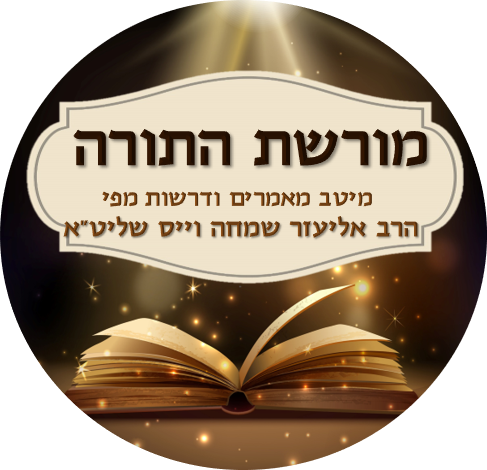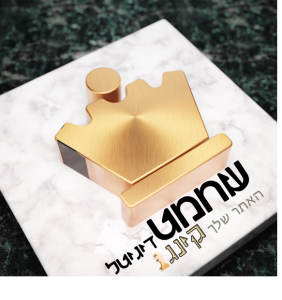Parshas Hazinu Forget Not!
Never forget …always remember.. “Zechor yemot olam binu shenot dod vador she’al avicha veyagedcha zkeinecha veyomeru lach” (32:7). We read in Parshat Haazinu, the words of Moshe Rabbeinu, “Remember the days of old, consider the years of each generation; ask your father and he will inform you, your elders and they will tell you” (32:7). This posuk teaches us to appreciate history and to learn the lessons it provides us. One who appreciates the past is more capable of dealing with the present in an appropriate manner. Man is obligated to attempt to find the Hand of G-d (Hashgacha) in history. . This Posuk informs us that every single Jewish person must remember past events in Jewish history, such as Yetziat Mitzrayim and the receiving of the Torah at Har Sinai. These events form the basis and foundation of our current beliefs and observances. What is the significance of the repetitive language of “Remember the days of old” and “consider the years of each generation?” How are they different? The Shem M’Shmuel cites Ibn Ezra who observes that the root meaning of “Shana” which means year is the same as “shinui,” which means change. . This insight can answer our question. “Shenot”, the years, can also be translated as the changes. Thus, the word “Shenot” is not derived from the word ‘Shana’ [year] but from the word ‘Shoneh’ [different]. We should remember the days of old, by preserving and understanding our history. At the same time, we must understand the changes that develop in each generation. It must be understood that the lessons of the past must be applied to the present with wisdom and good judgment. Times change; people change; circumstances change. Not everything that worked in the past will work today, and not everything that failed in the past will fail today. Blind application of the same rules that worked in the past to present situations will not necessarily succeed. Each generation is different. We ought not glibly say, “That’s the way it was; therefore that’s the way it has to be”. Thus, “binu shenot dor vador” teaches us to learn the lesson of history, while bearing in mind the changes from generation to generation. One must be “in touch” with every new generation. Since each generation has its own problems and its own circumstances, it demands careful analysis in order to comprehend it… One who is above the generation can not relate to its population, and especially to its youth. Therefore, at times we must alter and redirect, and not merely go with what was. Obviously, the Torah is relevant to all times and places. However, we must think and carefully consider the approach taken in teaching the Torah to each different generation, in light of our awareness of “the changes of each generation” The essence of the teachings of Judaism are constant from one generation to the next. But the idiom, style, manner, approach and mode of communication of that essence may, however,need to change from one generation to the next. What was effective in the Middle Ages is not necessarily effective in modern times; what worked in Eastern Europe will not necessarily work in Israel. Often, after raising a certain problem that cannot be resolved, the Gemara concludes with the word “TeYKU”. “TeYKU” is actually an acronym for the expression “Tishbi Yetaretz Kushyos V’Abayos”, which means that Eliyahu HaNavi (i.e. Tishbi) will resolve our difficulties and questions. Reb Levi Yitzchak of Berdichev asks, with all due respect to Eliyahu, why is he, of all the great personalities of Jewish history, the one who will come and resolve all of our difficulties and questions? What about Moshe Rabbeinu? What about Shmuel HaNavi? Reb Levi Yitzchak answers: Eliyahu can resolve all of the questions because of the principle that our Rabbis taught that “Eliyahu never died”. Thus, he is part of the twenty first century! He understands the twentieth century; he was part of the 17th century; and the sixth century; … he was part of it all. He never died. We need someone who has an understanding of each generation to pasken the shaylos [issue Rabbinic rulings on Halachic questions] for that generation. Therefore, only Eliyahu, who was present during all generations, is qualified to resolve the “TeYKU”. In order to resolve the problems and dilemmas of each generation, we need to understand “shenot dor vador”. In fact the Shem M’Shmuel (R. Shmuel of Sochochow) who cited Ibn Ezra’s observation that the root meaning of “Shana,” which means year, is the same as “shinui,” which means change, translates the posuk of “binu shnos dor v’dor,” to mean, “Understand the changes of each generation.” and understands this posuk to be referring to the concept of “the descent of the generations” that is Yeridas HaDoros. Yeridas HaDoros is the idea that there is a constant spiritual deterioration of the generations, beginning at Sinai and moving on through our own time… Yehoshua was not Moshe Rabbeinu and the Elders who followed Yehoshua were not on par with Yehoshua. There has been a steady decline in Torah knowledge. The further we travel away from Mt. Sinai, the less we can expect of the generation. Later generations descend in their level of Torah learning and Ruchanius (spirituality). No person today could hope to achieve the heights of Torah that the Vilna Gaon achieved. Certainly no one today can ever hope to approach the Torah knowledge of someone such as Rashi or the Rambam. No Amora could dissent with the opinion of a Tanna. Tana’im were greater than Amoraim. Likewise, no Rishon could argue with an Amora and no Achron is as great as a Rishon. We live in an age of Achronim or even post Achronim and we cannot reach the spiritual of Torah learning level of previous generations we couldn’t possibly hope to fathom the minds of the great men of previous generations. The Shem M’Shmuel explains the posuk as follows when one contrasts two opposing entities their respective differences become apparent. Darkness stands out as a result of our awareness of the advantages of light and vice versa. This idea applies to spiritual strengths and weaknesses. It is a given that the Jewish People have digressed spiritually throughout history. The best tool for measuring our spiritual digression is comparison to previous generations. By “Zechor yemos olam” “remembering the days of yore”, and “binu shnos dor v’dor,” understanding the changes of each generation, we are better equipped to accept our own deficiencies and attempt to correct them. When we observe the spiritual plateau attained by Jews of previous generations, we are able to acknowledge our own needs. Indeed, our future is based upon the lessons we learn from the past.
ספר שם משמואל פרשת האזינו
האזינו – שנת תרע”ח זכור ימות עולם בינו שנות דור ודור. נראה לפרש עפ”י דברי אבן עזרא דשם שנה נגזר מלשון שינוי. והנה ידוע עוד דכל דבר נבחן רק מצד ההיפוך. ולמשל אם לא הי’ חושך בעולם לא היתה ניכרת מעלת האור, וכן להיפוך אם לא הי’ אור בעולם לא הי’ נודע רעת החושך. וכן הוא בענין מהות הדורות, אם לא היו דורות טובים בעלי דעה ומדות טהורות בעולם לא היתה ניכרת פחיתות דור טהור בעיניו ומצואתו לא רחץ. וזה שכתוב זכור ימות עולם והוא כאמרם ז”ל (שבת קי”ב ע”ב) אם הראשונים כמלאכים אנו כבני אדם ואם הראשונים כבני אדם אנו כחמורים, ושניהם אמת, ובדורות מתחלפים שיש דורות שהיו כמלאכים כפי ערך דורות שלאחריהם שנחשבים כבני אדם, ועל כן יש מקום לקרוא לדורותינו בני אדם, ויש דורות שהיו נחשבים כבני אדם, ומכל מקום כאשר נעריכם לעומת דורותינו מוכרחים לומר שאנו כחמורים: אך הערכת דורותינו לעומת הקודמים, אף שזאת לבד מביאה תועלת שלכל הפחות ידע שחסר לו משלימות האנושית ולא יהי’ חכם וצדיק בעיניו כמו שכתוב (ירמי’ ב’ ל”ה) הנני נשפט אותך על אמרך לא חטאתי. אך אין זה מספיק אלא עוד צריכין להתבונן בשינוי הדורות מדוע נשתנה ולחפש אחר הסיבה שהביאה לזה, ואין לתלות הסיבה דוקא בראשי אלפי ישראל, כדמשמע ברש”י (ר”ה כ”ה ע”ב) דאם הדורות טובים וצדיקים יש להם ראשים ושופטים טובים עיין שם, וכן הוא במדרש שהראשים הם לפי הדור והדור לפי הראשים, אלא יש לחפש אחר שינוי קל שנעשה בין הדורות שלא הרגישו שבשביל שינוי קל כזה ירדו פלאים, ויתאמצו לסלק את השינוי הזה. וזה שאמר הכתוב אחר זכור ימות עולם בינו שנות דור ודו

 שחמט דיגיטל
שחמט דיגיטל